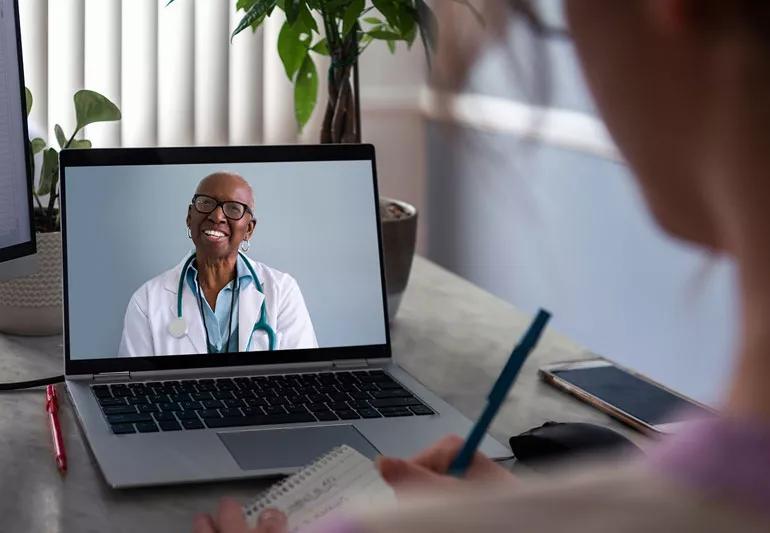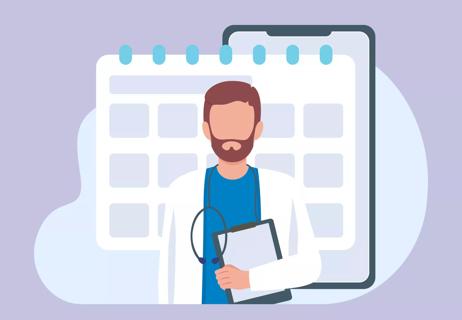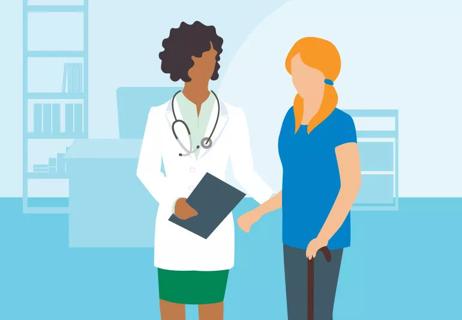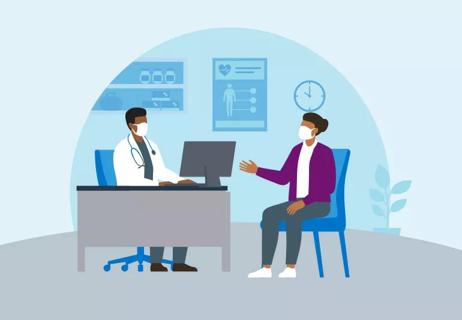It can offer you peace of mind and more information

When you’re facing a new medical diagnosis, it’s common to feel confused. Making decisions can be very difficult as you navigate the healthcare system, especially when you need to choose between several treatment options. How do you know you have been diagnosed correctly or are making the right treatment choices?
Advertisement
Cleveland Clinic is a non-profit academic medical center. Advertising on our site helps support our mission. We do not endorse non-Cleveland Clinic products or services. Policy
According to Dr. Rasmussen, a second opinion can help you:
It makes sense to get a second opinion when you face a medical condition that is life-changing or even life-threatening, says Peter Rasmussen, MD, cerebrovascular surgeon and Chief Clinical Officer of the Virtual Second Opinions by Cleveland Clinic.
Become a more educated healthcare consumer. By seeking a second opinion, you gain more knowledge of your condition and your options. You are more equipped to make informed decisions that can have long-term consequences.
Confirm that your diagnosis is appropriate. Have all of the appropriate studies and tests been completed and interpreted properly? Are there other diagnoses that should be considered?
Confirm that the recommended treatment is appropriate. Is the treatment plan correct and complete? Is it providing the desired results? Have all of the treatment alternatives been discussed?
Compare outcomes of the treatments you are offered. By obtaining a second opinion, you help ensure that you have been diagnosed appropriately and that you will receive the most up-to-date and optimal treatment plan. A second opinion may recommend treatments that may eliminate the need for unnecessary invasive procedures or surgery.
Advertisement
Ultimately, a second opinion can empower you to make the best decisions for your health.
Patients are often concerned that getting a second opinion will offend their current or local physician.
But physicians know that diagnoses can affect patients in many different ways and that it’s challenging for any one physician to know about every available treatment option.
Some doctors, as a practice, will reach out to colleagues for opinions on their patients, especially when a colleague has experience particular to a patient’s disease. New treatments are appearing very rapidly and a doctor’s experience in complex situations matters because not all doctors have such experience.
“Having additional information about your diagnosis and treatment can only be helpful,” says Dr. Rasmussen. “Most importantly, as a patient, it is your right to seek a medical second opinion. You are your own best advocate.”
A second opinion has the potential to provide your treatment team with the opportunity to consult with a leading specialist in their field. They are not just for life-threatening diagnoses, such as cancer or heart disease.
“Getting a second opinion for conditions that significantly affect your quality of life, such as hip and knee replacement, can ensure you have been diagnosed appropriately,” says Dr. Rasmussen. “Plus, it’ll ensure you’re getting the optimal treatment, including further medical treatment instead of surgery, and it could save you time and money.”
By removing the geographic barriers to care and using an online second medical opinion program, patients can benefit from the recommendations and advice provided to improve their health and their health care.
In some cases, the opinion provided by a second physician may agree with the diagnosis and treatment identified by your physician. This can provide you with reassurance, peace of mind and confidence that you are making the best choice for your health.
Advertisement
Learn more about our editorial process.
Advertisement

Signs are what your provider can see, but symptoms are what you feel or experience

Screenings and tests done during a wellness check can uncover hidden health issues

An annual physical exam is important for many reasons, including your chance to ask questions

From odors to colors, it’s more than OK to ask your doctor these questions

This iconic medical tool has an enduring role

Simple tips to make your visit more effective

Tips to help you get the most from your visit

What you really want to know about what's going on down there

Wearing a scarf, adjusting your outdoor activities and following your asthma treatment plan can help limit breathing problems

Your diet in the weeks, days and hours ahead of your race can power you to the finish line

When someone guilt trips you, they’re using emotionally manipulative behavior to try to get you to act a certain way